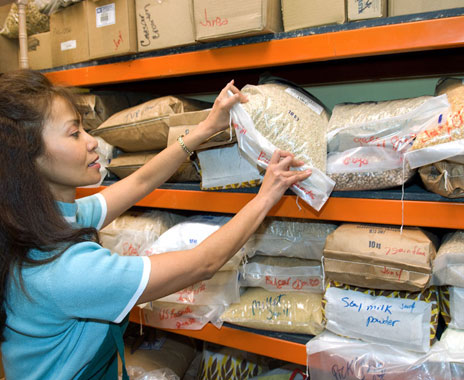Restaurateurs manage a lot. And it’s much more than the obvious list: the menu, the servers, the guests.
Among the most important relationships you manage is the one you have with your suppliers—and specifically, the sales representative assigned to your account. In many instances, you manage multiple supplier relationships, from meat to dry goods, produce to bread, chemicals to disposables. And that relationship goes far beyond managing the inventory.
Having worked with restaurant owners and operators across a spectrum of concepts, cuisines and styles, there are certain attributes that are key to making the supplier relationship a success. Here are four specific qualities all restaurant managers should look for in a supplier sales representative.
They are responsive and communicate clearly
The best reps are the ones who are always quick to respond to calls, texts or any question you might have. There is nothing worse than being left in the lurch when you are trying to plan a menu for the next week and your supplier is slow to respond to your inquiries.
They should also be timely about keeping restaurant owners updated on delays in delivery times, price changes, and product shortages. (With a good supplier, hopefully these are kept to a minimum).
They accurately set expectations from the start
Most supplier/restaurant relationships fail because of expectations. Restaurants may expect the supplier to deliver in ways that are just not possible. At the onset, work with your main contact to establish a routine for the relationship, with clearly defined goals.
Likewise, be open to the supplier helping you to understand what is realistic and what is and isn’t possible. It’s fine to have high expectations, but as there are a lot of moving parts on the supplier end as people do their best to carry out your wishes, patience goes a long way.
They have been around the block
Too often the cycle of sales reps is like a revolving door: They keep coming and going and restaurant managers have to keep developing new relationships.
“It’s too time consuming having to develop new relationships and some of them are so green they don’t take the time to really get to know you,” says Thomas Nguyen, co-founder of Peli Peli, a South African restaurant group in Houston.
When seeking a supplier, try to choose those that have sales reps that have been around for a while and truly enjoy what they do. Don’t be afraid to ask those questions before you sign the dotted line.
They take the time to understand your business
“Suppliers need to gain an understanding and respect for their customers. Too many suppliers are simply order takers,” according to John Bornoty, CEO & Founder of national salad franchise restaurant The Big Salad, headquartered in Grosse Pointe, Michigan.
They don’t take the time to understand and react to your needs. You will remain most loyal to those that treat you like a partner, instead of just a client, and care about your business the way you do.
The best reps are those that put in the time at the beginning of a relationship and see themselves as an extension of your business seeking opportunities to act proactively on your behalf.
The End Game: Building a Virtuous Circle
Once you have found the perfect supplier sales rep and cultivated that relationship, remember that the best relationships are mutually beneficial and thrive in the spirit of community and true collaboration. While building a quality rapport with your supplier will ultimately help your bottom line, your generosity can help theirs as well.
Recommend their products to other restaurants and be sure to let them know that you did so.
Use their products to inspire restaurant menu ideas and give them direct feedback on how your customers are responding to their products.
Look to them for advice when you are trying to create a particular menu item by bringing them into the process.
Also, ask them how you can help them succeed and what items they are particularly excited about. Done with the best of intentions, these relationships can be leveraged to help positively impact everyone’s bottom line.













